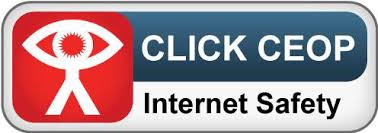Online Safety is an important part of keeping children safe at Paddock Wood Primary Academy. e-Safety is taught to all pupils which explains and demonstrates how to stay safe and behave appropriately online but we can only be successful in keeping children safe online if we work with you. Your help is needed to talk to your children about how they can keep themselves safe and behave appropriately online. It’s important that we are all vigilant when children are using the internet and act to ensure they are protected from people who may pose a risk to them. Children can accidentally or deliberately be exposed to illegal, unwanted or unpleasant content, comments or activity online and there are steps you can take at home to minimise this risk.
The Golden Rules for Online Safety at home
- Discuss as a family how the internet will be used in your house. Consider what information should be kept private (such as personal information, photos etc) and decide rules for making and meeting online friends. Ensure your children know the risks of accepting friends’ requests from strangers online and make sure you know what your child is doing online much like you would offline.
- Discuss using strong passwords with your child so they understand how they can protect their online accounts. It’s important they know they need to keep their passwords safe and not share them with anyone or use the same password for several accounts. If your child’s account is “hacked” or compromised then make sure they change their password and report any concerns or suspicious activity.
Ensure that you understand how your children’s devices work (e.g. can they download apps). Install antivirus software, secure your internet connection and use Parental Control functions for computers, mobile phones and games consoles to block unsuitable content or contact.
- Always remember that parental control tools are not always 100% effective and sometimes unsuitable content can get past them, so don’t rely on them alone to protect your child.
Consider locating your computers and laptops in a family area where children’s online activity can be monitored or supervised. Always supervise the use of webcams and any applications or devices which allow voice or video chat. Also consider the use and location of other devices your child’s uses which allow internet access such as mobile phones and games consoles. Visit www.saferinternet.org.uk/advice-and-resources/a-parents-guide for safety information about consoles and devices.
- Talk to your child and ask them to show or even teach you how they use the internet, learn which websites or tools they like to use and why. Learning together with your child can often open opportunities to discuss safe behaviour online. It’s important that you know all of the sites and apps that your children are using and that you make sure they are suitable (e.g. read the sites terms and conditions) and age appropriate.
- Ensure that your child knows that once a picture, video or comment is sent or posted online, then it can be difficult to remove and control as other people can forward it share it without them even knowing.
- Always ensure you and your child know how to block and report people online who may send nasty or inappropriate messages or content. Explore privacy settings, help guidance and any information on the site for parents. Encourage your child not to retaliate or reply and to keep any evidence of cyberbullying messages.
- Make sure your child knows it’s important that they tell an adult they trust if anything happens online that makes them feel scared, worried or uncomfortable.
- It’s essential to be realistic: banning the internet or web sites often will not work and it can make a child feel less able to report a problem or concern, so education around safe use is essential.
- www.thinkuknow.co.uk – The National Crime Agency’s Education team. Their aim is to help protect children and young people from online child sexual abuse. Visit the “Parent/Carer” Section and use the “Click CEOP” button to seek advice and report online abuse.
- www.childnet.com – Visit the ‘Know It All’ Section for an interactive guide about online safety
- ww.getsafeonline.org – Free up-to-date Security advice including using complex passwords and managing hacked accounts
- www.pitda.co.uk – Parenting in the Digital Age
- www.commonsensemedia.org
- www.saferinternet.org.uk
- www.kent.police.uk/internetsafety – Guidance from Kent Police
- www.kent.gov.uk/esafety – Guidance from Kent County Council
- www.ceop.police.uk – If you are worried that your child is at risk of harm or criminal offence has been committed then you can report your concerns to the Police or Children’s Social Care. Please do not notify suspicious profiles of your actions, as this could enable them to delete material which might be required for any Police investigations. You can contact Kent Police via 101 or 999 if there is immediate risk or CEOP by visiting www.ceop.police.uk and using the “Click CEOP” reporting button below.
- Kent Children’s Social Services on 03000 41 11 11, or email social.services@kent.gov.uk.
- School Office – Alternatively, please contact the school office regarding any help you may need or concerns that you may have or use the Contact Us section of the website. Advice for Parents on Cyberbullying information pdf & UK Safer Internet Centre poster pdf
CEOP Button
Are you worried about online sexual abuse or the way someone has been communicating with you or your child online?
contact CEOP (Child Exploitation and Online Protection Centre)Formed in 2006, CEOP’s aim is to eradicate the sexual abuse and grooming of children online.
If you are worried that your child has become involved in county lines or any form of child exploitation, you can contact Crimestoppers anonymously on 0800 555 111.
See our Family Support page for more details of other organisations providing advice and help to children and families.



